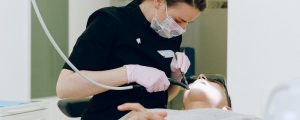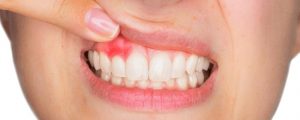3 Important Things To Do During A Dental Emergency
We have all faced them: dental emergencies. One moment you’re hanging around the house doing everyday chores and the next you know you, slip on water and fracture your teeth. Cracked or knocked out a tooth, loose tooth, fallen dental crowns, bleeding gums, cheeks, or lips are all examples of dental emergencies. When you have an emergency, the first thing you should do is contact your dentist. If it seems like it could take a while to get to the dentist, here are three important things you should do in the meantime.
Clean your Mouth
For most of the dental emergencies, start by cleaning your mouth. Rinse your mouth with salt and warm water solution. Avoid the salt if you have excessive bleeding or irritated gums — the salt may induce more bleeding. Once you rinse your mouth, floss between the teeth to remove any food particles lodged in between the teeth. Often, particles stuck in your teeth could be the reason you suffer toothaches. If it looks like your mouth is swelling, use an ice pack or a cold compress to massage around your mouth. The ice will reduce and prevent further swelling.
Over-the-Counter Painkillers
If you’re suffering from a severe toothache or your tooth is knocked out, you can use over-the-counter painkillers until you get to a dentist. Be wary, however, you should use only painkillers recommended by your dentist. If you’re not sure what to use, better don’t opt for painkillers at all. One of the safe painkillers is ibuprofen. Never use aspirin or other strong painkillers to relieve the pain — they may burn your gum tissues.
Protect your Teeth
If your tooth is broken or knocked out, you should first take measure to protect your tooth until you can get to a dentist and get it reattached. Note that you should never reattach baby tooth. If your fallen tooth seems dirty, grasp it by the brown and rinse it to get rid of the dirt. Avoid scrubbing or forceful water as it may wash away any pieces of tissue stuck in the tooth. You can try pushing in the broken tooth back into its socket. But if that’s not possible, The American Dental Association says you should immerse the tooth in milk which preserves the tooth until a dentist can reattach it for you. You can also wrap your tooth in a clean cloth and place it in saline solution (used for contact lens)
These are simple home remedies you should do during a dental emergency. However, the most important thing is to make an appointment with your dentist as soon as possible. No matter how well you treat your dental issues at home, your dentist can help you fix it better. How have you handled dental emergencies? Share with us in the comments below.




